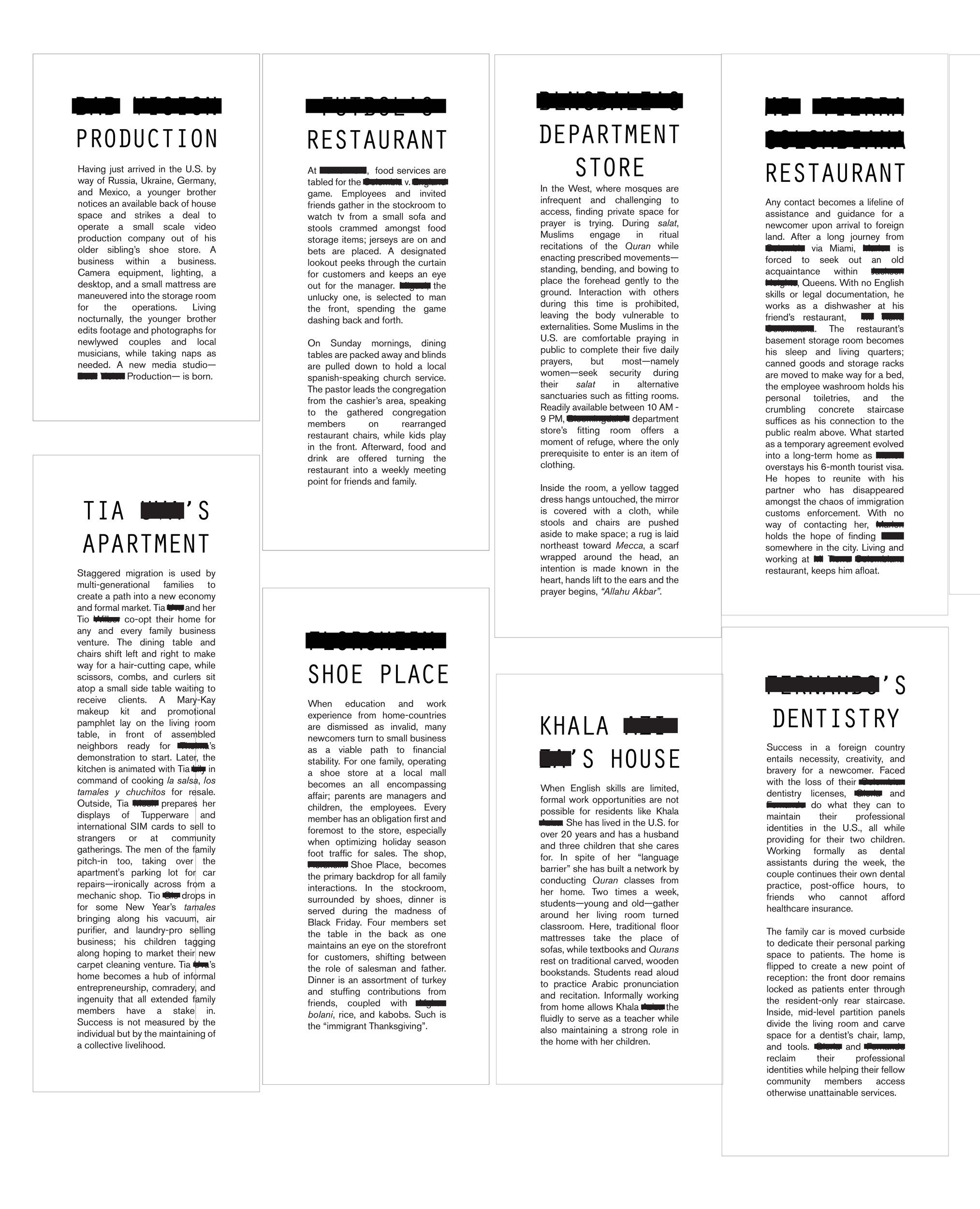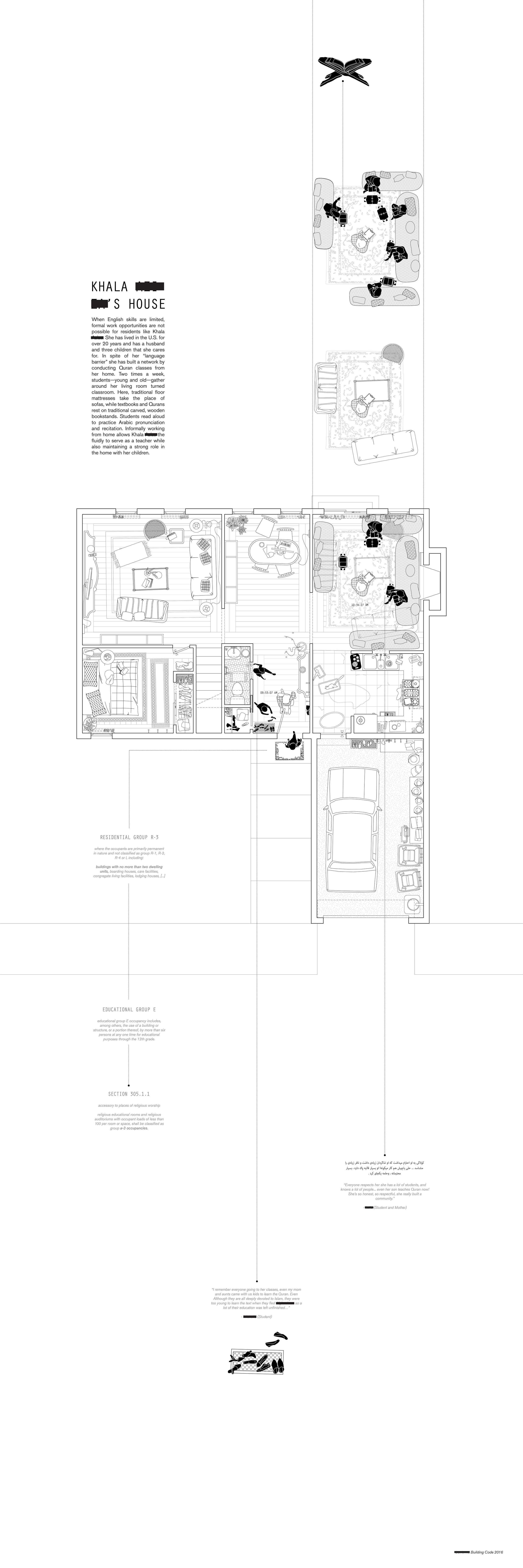
reVEIL
Curated Exhibit, Fall 2019
Yale School of Architecture
Collaborators: Alex Pineda, Brenna Thompson, Limy Rocha, Michelle Badr
survival: (n.) the continuance of a custom, observance, etc. after the circumstances or conditions in which it originated or which gave significance to it have passed away.
In the current age of global mobility and immigration, there is a parallel desire to classify, sort, and identify difference. Resulting terms such as displaced, immigrant, refugee, asylee, alien, illegal, and marginalized connote an exclusionary societal view that systematically segregates, pushing these populations to the socioeconomic and spatial periphery. As prevailing methods in the U.S. continue to define, oust, and assimilate cultures at an accelerated rate and scale, it becomes increasingly important to consider the practices with which alterity survives.
According to the U.S. Census Bureau, more than half of the service industry’s workforce is foreign-born. Under the veil of cook, cashier, sales rep, dishwasher, cleaning lady, delivery guy, janitor, valet [...], the service industry initiates them into its back-of-house, affording a distant view to the American Dream.
Once initiated, a grey zone that is understood as a “private” realm— accessible only to those within—becomes the backdrop for survival; the retail store fitting room is subverted into a sanctuary for prayer and the restaurant is subverted into a temporary refuge. This unconsidered public subvert their surroundings with the need and desire to conduct daily rituals, creating an internal collective.
We celebrate our collective identity and the act of sustaining it within a territory distant from our homeland.






